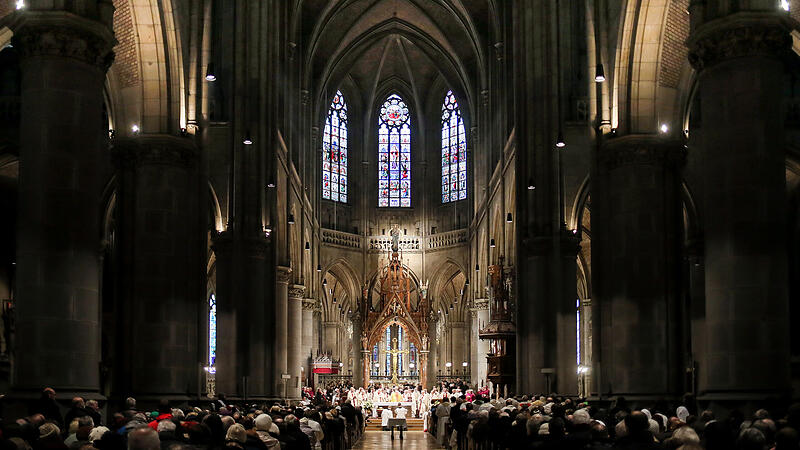Image: Volker Weihbold
And yet she is moving. Galileo Galilei is said to have murmured these words as he left the Inquisition court in Rome in 1633. His proof that the earth revolves around the sun threatened to shake the worldview of the Catholic Church. For fear of being burned at the stake, the astronomer – against his better judgment – renounced his claim and was only rehabilitated by Pope John Paul II in 1992.
This sentence, which has shaped the image of a church hostile to progress for centuries, can be interpreted in its favor following this week’s decision on homosexuality. The Vatican has made a move by allowing same-sex couples to be blessed.
To paraphrase Neil Armstrong, it is a small step for society, but a giant leap for the Catholic Church. This reveals one of their dilemmas in 2023: topics that are considered taboo in Rome have long since arrived in our society.
Women in leading roles? Divorced and remarried people as full members of the community? What would be tantamount to a revolution to accept in church circles is reality. For decades, the official church in Rome has become too distant from the lives of many people in Europe to play a relevant role. Others fill the resulting vacuum.
In order to understand the hesitation of the Pope and his advisors on all of these issues, one needs to take a holistic look at the Catholic Church, which with around 1.4 billion members is the largest religious community in the world. Only one in five Catholics lives in Europe, where the number of members is continually falling.
Pope Francis cannot meet European demands without offending conservative fellow believers in Africa and Latin America and risking a split in his church. It is a balancing act to instruct the archbishop in Uganda to bless when homosexuality is punishable by death in his country. The universal church has become a torn one.
At Christmas of all times – one of the highlights of the church year – to write only about the church’s shortcomings would be to miss the topic. The Catholic Church in Upper Austria is still a giant in numbers: 900,000 people belong to the religious community, making it by far the largest in our country.
Unless it’s Christmas, very few of them find their way to places of worship. Loyal visitors to Sunday mass would have to be placed under species protection.
The churches are lacking young talent, both in terms of visitors and staff. The fact that church operations still function is thanks to tireless priests and volunteers who find in God the meaning that should constitute the essence of the church and that was pushed into the background in the wake of scandals and cases of abuse.
It is a paradox of our society and times that the longing for spirituality has never been greater and at the same time never have so many turned away from the church. The answers to pressing questions are sought on the Internet. People trust Doctor Google with their most personal concerns and desires. If you can’t find what you’re looking for there, you turn to soul catchers who promise miracles with lulling words and scented candles. The esoteric market is estimated at 15 billion euros in Germany alone. That would be twice as big as the German beer market. Many people find consolation there too.
Trust in God is increasingly being replaced by belief in angels and horoscopes. In Western countries they are not the only competition to the church: Who needs religion when the welfare state guarantees financial security and medical advances provide healing?
Faith is a strategy for coping with suffering and disappointment. It helps us to understand the world even when we cannot understand it, to act even when we cannot do anything.
Charity, mercy and hope are the motifs that run through Christianity’s most famous story: the birth of Jesus. What the church narrative teaches us is selflessness. By Christmas at the latest, we should remember that the greatest gifts in life are presented without expectation of anything in return and cannot be outweighed by material things.
My themes
For your saved topics were
new articles found.

info By clicking on the icon you can add the keyword to your topics.
info
By clicking on the icon you open your “my topics” page. They have of 15 keywords saved and would have to remove keywords.
info By clicking on the icon you can remove the keyword from your topics.
Add the topic to your topics.
Source: Nachrichten




